Patty Griffin wasn’t aware how meaningful her song “Way Up to the Sky” would become when she first started writing around her 2019 self-titled album. It began as a tribute to her mother, Lorraine, who died in February 2025 at age 93, and never had the chance to hear it.
“I had the first part of that song several years ago, before the last record,” says Griffin during a video interview from her home in Austin, “but it never revealed itself to me until I spent a lot more time with her while she was passing away.”
“Way Up to the Sky” became Griffin’s biographical goodbye to her mother, whom she reconnected with during her final decade of life. “Being with her while she was processing her life, I learned a lot, and it helped me get to some of those things in that song,” says Griffin.
Lorraine Griffin’s life story was also the foundation of her daughter’s eleventh album, Crown of Roses, a collection of musical epistles to the woman her mother was and the struggles of women of her generation.
“It’s an honor to get to be with somebody at the end of their life,” says Griffin. “It’s kind of like this mysterious transition, and it’s hard, and it hurts.”
The album cover is also adorned with a black and white photograph of Griffin’s mother on her wedding day with a countryside silhouette of her home state of Maine, surrounded by a vivid bouquet of roses, birds, and butterflies, designed by artist Mishka Westell.
Videos by American Songwriter
For Griffin, Crown of Roses was a natural progression of songs that became more about women than men. Whereas so many of her past albums centered around men and “trying to understand them,” returning to Maine to help care for her mother changed the entire narrative for Griffin.
“It made me look at and become a lot more interested in female stories,” shares Griffin,
The album also follows a timeline of setbacks and regrets, kicking off on a more uptempo introduction, “Back at the Start”—Some things push you down so far / Knock you round so hard / It’s hard to get up. Shortly after Griffin’s father died in 2009, she joined Robert Plant’s reformed Band of Joy, and the two dated for several years before breaking up in 2013.
Three years later, Griffin was diagnosed with breast cancer and underwent radiation treatment, which affected her vocals and prompted her to explore more intimate songs on Crown of Roses. “I wanted to try to make smaller songs,” shares Griffin. “My voice is not young anymore, and I discovered that I like singing small, so I went with that in mind.”
Taking cues from Brazilian singer Rosa Passos, Griffin worked her way through the more sentimental tracks on the album. “She [Passos] never gets above a whisper, and it’s so powerful,” says Griffin. “It was about trying to find a place like that to sing from.”
Still guided by her mother, who witnessed the vanishing wildlife outside her window during springtime, Griffin addresses a different grief on “Born in a Cage”—one of two songs she co-wrote with guitarist David Pulkingham and drummer Michael Longoria—and the apathy towards nature, the plight of animals, and their loss of natural habitats.
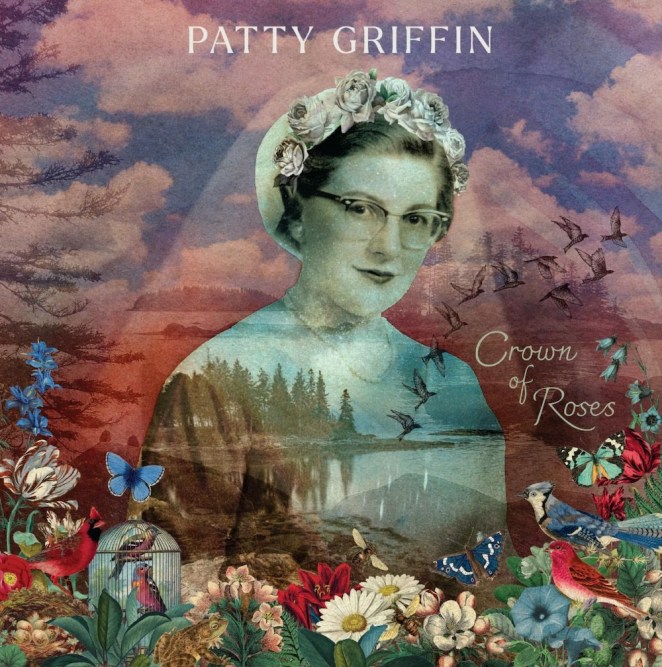
With the help of producer Craig Ross and composer Steven Barber, Griffin also embraced more ambient arrangements on the album, including the strings on “The End,” crossing over the scars and dents of aging.
A song of forgiveness, “Long Time,” features Plant on backing vocals, while “All the Way Home” departs from the lusher balladry on the album and captures a more flamenco spirit. “I think if I get to choose my next life,” jokes Griffin, “I want to come back as a very funny and talented flamenco dancer.”
The closing “A Word,” co-written with Pulkingham, comes to terms with life, death, and everlasting loves—And I believe the last will be the first / The love you leave on earth goes round forever / And I don’t know how / As dreams keep burning down / To turn it all around / But I will never stop loving you.
It’s an honor to get to be with somebody at the end of their life. It’s kind of like this mysterious transition, and it’s hard, and it hurts.
Patty Griffin
It’s a wonder how Griffin ended up with eight songs for Crown of Roses since some barely made the album, including “Back at the Start,” which she had written years earlier and then tossed in the garbage. When Longoria asked her about the song, the original lyrics were gone, and she was tasked with rewriting it for the album.
“I didn’t think anybody liked it,” recalls Griffin, who admits to discarding batches of songs she didn’t deem worthy over the years. “Then Michael said, ‘Remember that song we played, what’s it called?’ I didn’t have the lyrics anymore, so I had to figure out new ones, and that got me looking at everything else that I’d thrown away, so I started working on things from there.”
She adds, “I went back to that song [‘Back at the Start’] because I liked the first line: ‘There’s secrets I don’t tell ever to myself. I just keep moving.’ ”
Even the album title was pulled from another discarded song: Here she comes again, with her crown of roses / Ignoring all of them turning up their noses. “My mom was Catholic, and I like the idea of a crown of roses as opposed to a crown of thorns or a crown of gold,” says Griffin. “There’s also something very female about it. There’s something about me and my mom and where we were at the last few years together, and the things I’m learning from her.”
Griffin described Lorraine as an intelligent woman who was studying for her Master’s degree before taking on motherhood. As she spent more time with her mother, Griffin picked up on her insecurities and regrets, something many women of her generation likely endured. Towards the end, her mother needed reassurance that her “life meant something,” Griffin says.
“That was surprising to me, because it went without saying,” she shares. “She was impossibly excellent at so many things, but she didn’t see it that way.”
After graduating from high school in 1949, Lorraine was the first person in her family to go to college and paid for it herself. She graduated in 1953, in the midst of the 1950s McCarthy era in America, when women were expected to work in factories and take care of their homes.
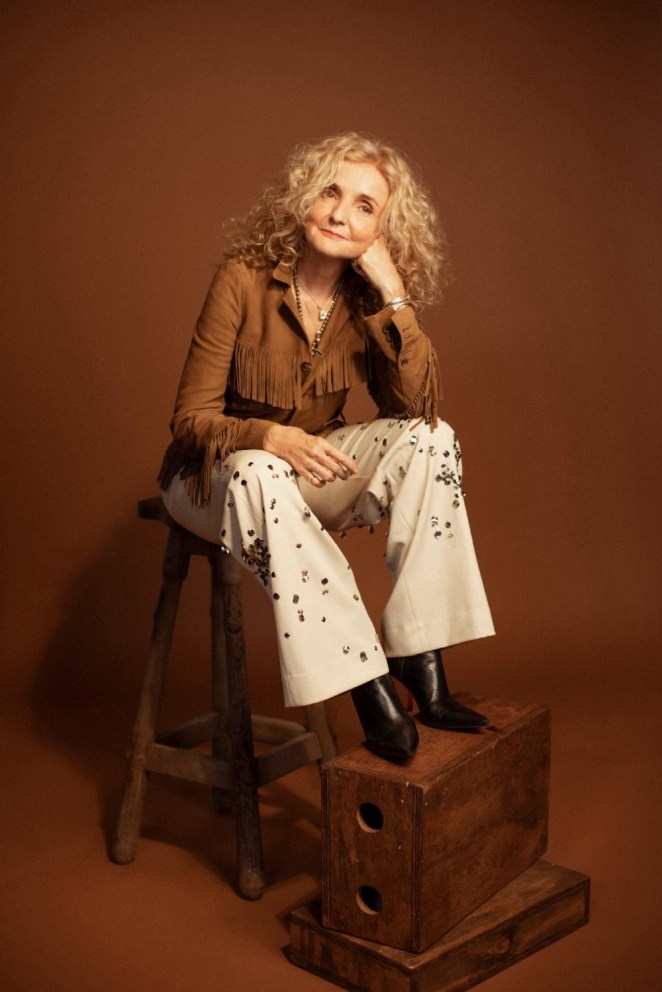
“[Women were] out,” says Griffin of the time. “It was like ‘You guys are dumb, and that’s where we want you.’ And I think she never went quietly into that. She had a really hard job raising as many kids as she did in such a short period of time. She got to use her brains, but I think she didn’t have any validation coming her way, culturally.”
This period, Griffin says, left many women, including her mother, angry because of the double standard. “People were just so used to her being there—women in general,” she says. “I was surprised at how deep that was still with her. She had doubts about being a good mom, and I think one of the things that she worried about was having this anger and having us at the same time, and if that affected us. I’m sure it did, but I think it was necessary for her and us. She was a good mom, anyway.”
Through loss and grief, and personal setbacks, everything has shifted for Griffin since releasing her tenth album, a self-titled release, in 2019. When asked if she has another album in the works, she jokes, “I think I’m an every six-year kinda gal.”
The way Griffin sings, after temporarily losing her voice, to how she writes has also significantly changed since her 1996 debut Living With Ghosts, which coincidentally featured her first homage to her mother, “Sweet Lorraine.”
“It’s all over the place, for me, more than ever,” Griffin says of songwriting. “I’m also landing in a place now where I’m starting to be able to enjoy singing again. I’ve done a lot of work on making things work again after a period of time of not having that.
It’s been a long journey, but I’ve met myself where I’m at now.”
Photos: Alysse Gafkjen


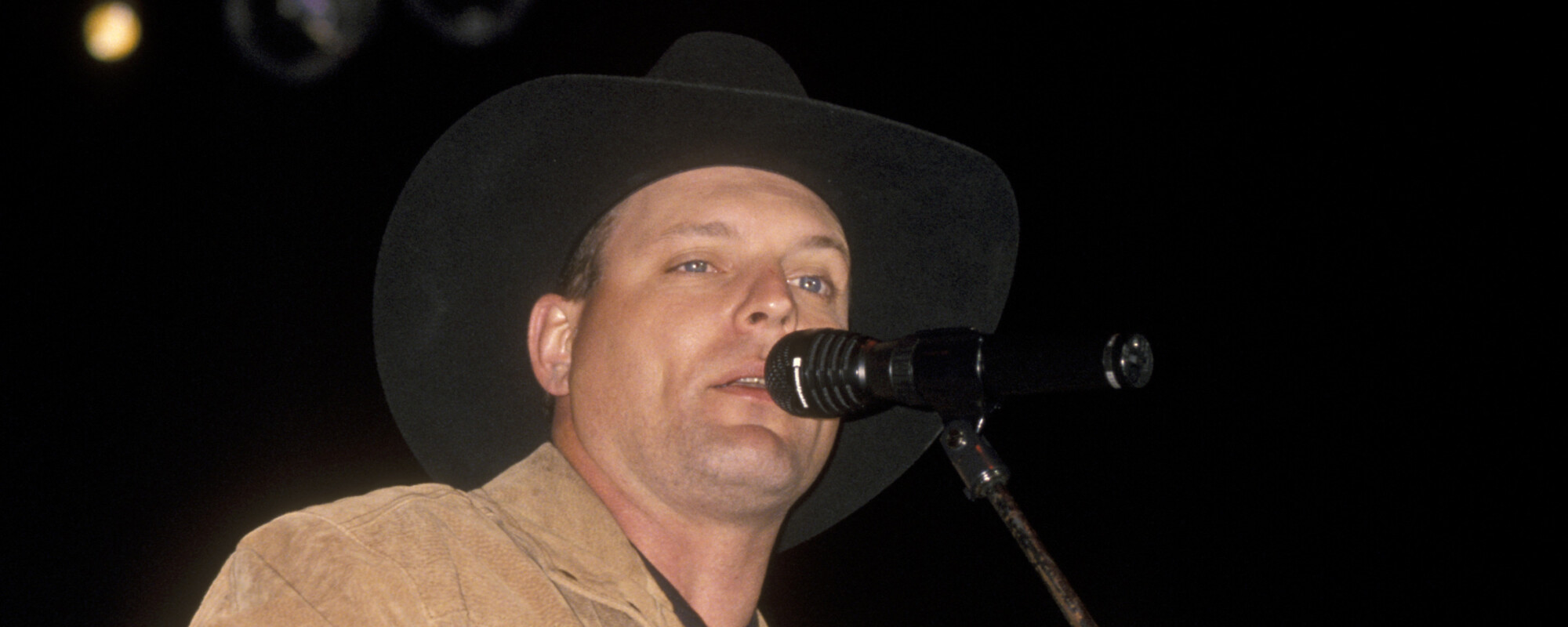
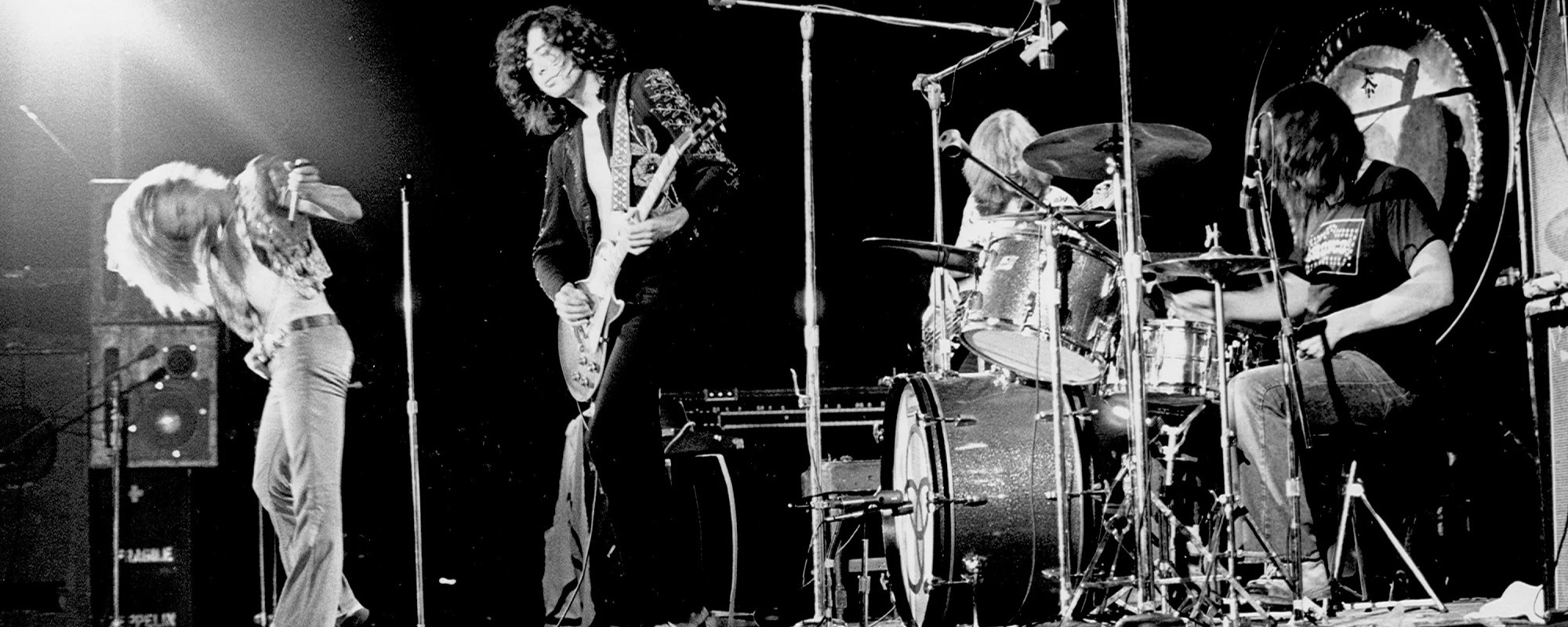
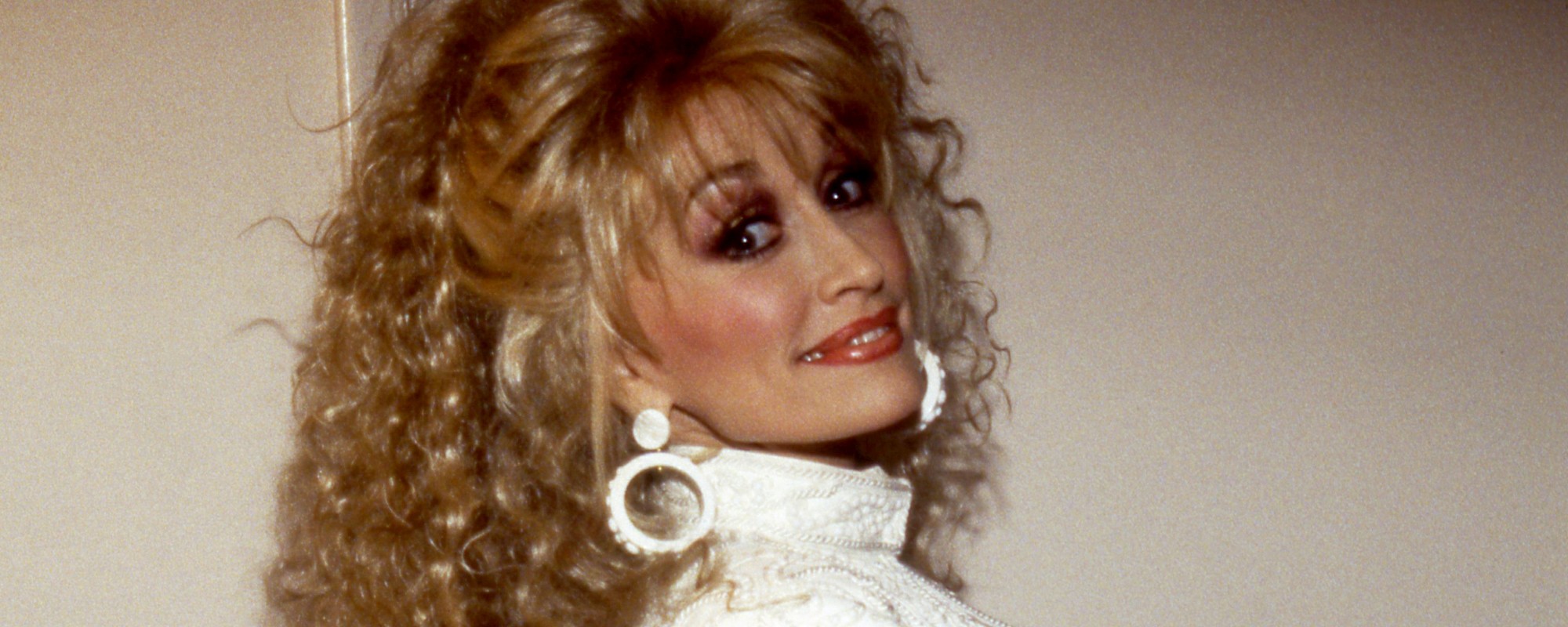






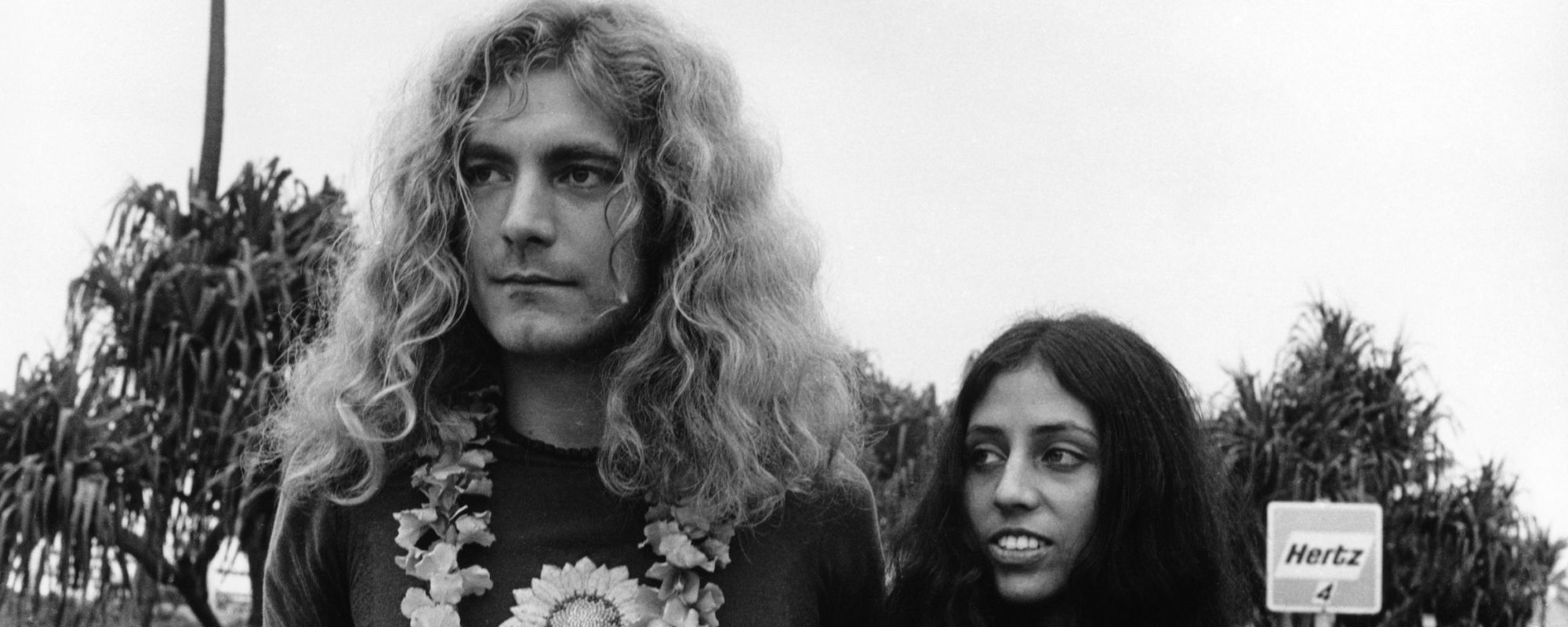
Leave a Reply
Only members can comment. Become a member. Already a member? Log in.